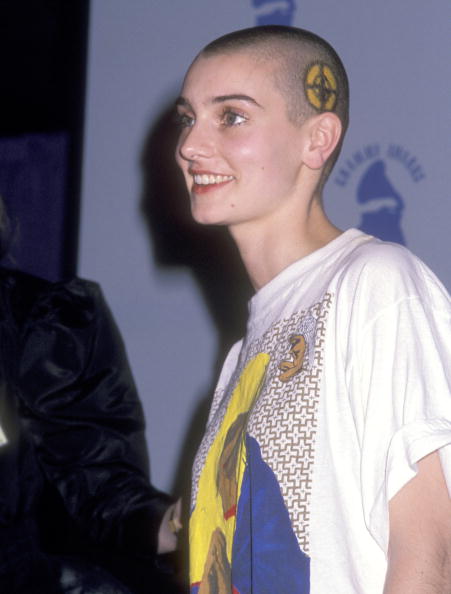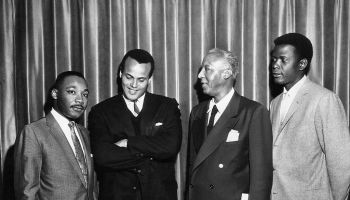
Source: Ron Galella, Ltd. / Getty
Beloved singer, songwriter and musician Sinéad O’Connor’s family announced that she died at age 56 on Wednesday (July 26) morning. The singer was best known for her mega-hit in 1990 with her Prince-penned single “Nothing Compares 2 U,” but it was her socio-political efforts that stood the test of time. Read more about one of her many protests, which involved rap group Public Enemy and her shaved head.
Shuhada’ Sadaqat, known professionally as Sinéad O’Connor, was an Irish singer and musician. Her debut studio album, The Lion and the Cobra, was released in 1987 and charted internationally. Her family announced her death earlier this week and no cause of death was given.
Since then, notable Black celebrities like Janelle Monae, Ice T and Public Enemy group member Flavor Flav have sent out special tributes across social media.
The widespread talk about her as a songwriter, musician, activist and spirituality made us remember the time she shaved the Public Enemy logo onto her head to protest the rap category not being televised at the Grammys.
It also happened to be O’Connor’s first ever public prime-time TV appearance at the 1989 Grammys, where she was nominated for female rock vocal performance. Artist Billy Crystal introduced her as “no ordinary talent.”
The Recording Academy was set to present its first-ever awards for rap music, but citing limited airtime, the presentation would not be televised. Due to being written out of the telecast, some of the rap nominees decided to boycott the ceremony.
Then 21-year-old O’Connor came out singing “Mandinka,” while sporting Public Enemy’s logo painted in her hair as a badge of solidarity with the artists who had been effaced from the program.
Aside from making bold political statmeents at major awards shows, she also made one decision which changed the entire course of her career.
On her 1992 appearance on “Saturday Night Live,” O’Connor destroyed a photograph of Pope John Paul II. She sang Bob Marley’s “War,” which was not on her album, changing the song’s lyrics to reflect child abuse instead of racial oppression. The photo of the pope belonged to her late mother, a souvenir of his 1979 trip to Ireland that had been her prized possession. The act of destroying the photo live on the popular late night show was meant to attract attention to the Catholic Church’s pervasive sexual abuse of its young and most vulnerable followers. Though it may have appeared to be an attack on the religion and the Pope himself, O’Connor’s intention was to destroy a symbol of the institutions hypocrisy as it continued to silence survivors like herself.
O’Connor went on to release almost a dozen albums, recorded songs for film and TV, and contributed music to causes including HIV/AIDS awareness and Black Lives Matter.
Rest easy, Shuhada’ Sadaqat!
















